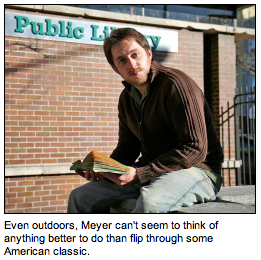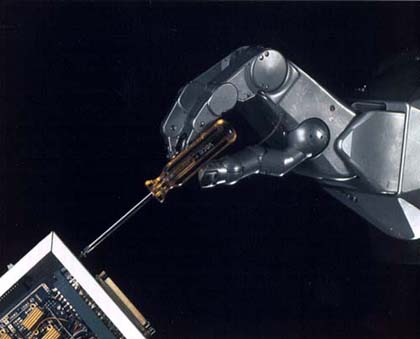21st Century Upton Sinclairs
 Saturday, March 8, 2008 at 09:54AM
Saturday, March 8, 2008 at 09:54AM 
Scott McLeod's post, Cell phone cameras in the K-12 classroom: Punishable offenses or student-citizen journalism? on LeaderTalk is well worth spending some time reading, viewing and contemplating. On the post he has embedded seven videos taken covertly by students in classrooms when teachers are, to put it mildly, behaving badly. Scott poses the questions:
Do we want students bringing to public attention these types of classroom incidents? Should students be punished or applauded for filming and posting these?
These are great questions. While plenty of Scott's readers felt otherwise (read the comments!), my first thought was that this just may be the 21st century equivalent of muckraking. Upton Sinclair cleaned up the meat packing industry with the publication of The Jungle in the early 20th century. Is this the classroom's version of The Jungle? Might such citizen journalism result in educational reform?
(And no, I am not so naive to think these students are consciously emulating Ida Tarbell. My guess is that they are just being little buttheads. I see any positive fallout as being more in the realm of unintended consequences.)
However, as a result of enough student-produced hard evidence of teacher incompetence, might we see:
- Anger management classes for teachers who need it?
- An increased emphasis in staff development on creating engaging classrooms and using better classroom management techniques?
- Alternative placements for students who are chronically disruptive or non-productive? (Let's let the cameras roll on the other students too.)
- More empowered principals who can remove or take steps to improve incompetent teachers?
My thoughts on this are colored by some very personal considerations:
- As a student, I got more than one teacher and administrator to lose his/her cool. And thought it was pretty funny watching some old person turn red and bellow.
- As a young teacher, I had classroom moments similar to what I saw in these videos when the kids got to me. (It's tough to look in the mirror at times.) I needed and should have received help in keeping this from happening. I still feel I need to offer apologies to those poor students I had in my classes early in my teaching career.
- I do NOT want my grandsons experiencing moments in the classroom like those shown in the videos.
Yes, students have been driving teachers nuts and teachers have been losing their cool since... well, probably since there have been students and teachers. But are we now ready to actually DO something about it?
________________________
In terms of the issues raised about teacher privacy rights: I am guessing the meat packing plants, insane asylums and other targets of the 20th century muckrakers all shouted "This is private!" as well. I think one could argue that classrooms are public, not private spaces. (We put cameras on school buses, yes?) I would hope students take any evidence of teacher malfeasance to their parents and principals first, and use YouTube only as a last resort for publicizing - and ending - the problem.










